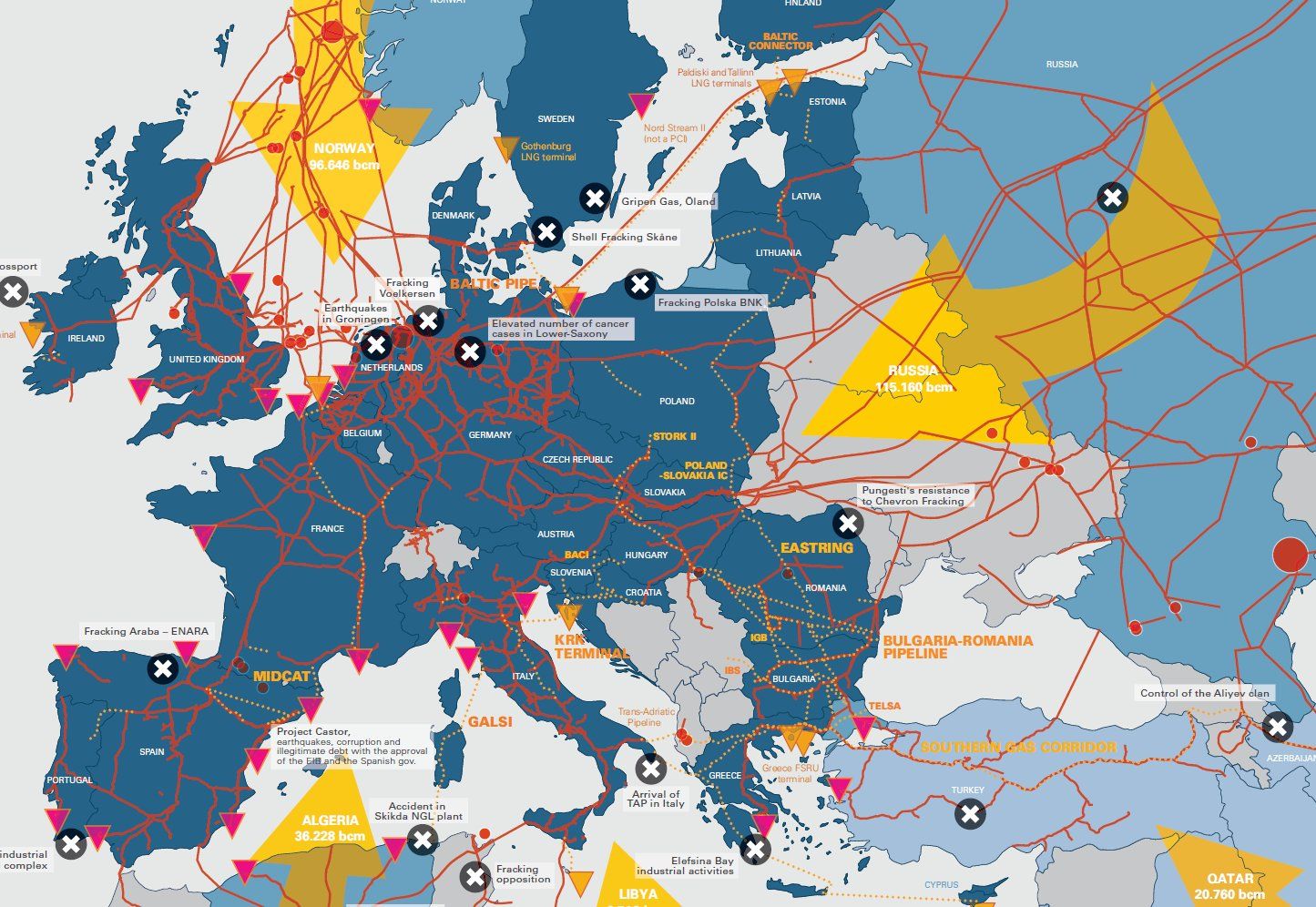Hungary’s cheap wages, big subsidies and pro-Beijing stance are attracting a wave of Chinese companies looking to expand into Europe
When Agosto Bodo took a job at a Chinese law firm’s Budapest office last year, he found himself catapulted into the centre of a China-fuelled investment boom.
Yingke Law Firm, a major player in Chinese corporate law, had opened the new office to serve a wave of Chinese companies looking to open factories in Hungary. And the business was quickly gaining momentum.
“We helped our clients with sourcing labour, looking for offices – we provided the whole service to help them overcome the language and culture barrier,” Bodo said.
Do you have questions about the biggest topics and trends from around the world? Get the answers with
SCMP Knowledge
, our new platform of curated content with explainers, FAQs, analyses and infographics brought to you by our award-winning team.
For Bodo, who started as an intern before becoming a director’s assistant, it was an eye-opening experience. He quickly had to learn a new way of doing business, which often revolved around boozy banquets with Chinese executives.
“I kept my alcohol consumption moderate,” Bodo laughed. “Chinese clients are different from European ones in that they want to know you more personally.”
By the time he left to start a master’s degree in late 2024, Yingke’s Budapest outpost had already signed 10 clients – a mix of new business and existing Chinese clients looking to expand into Hungary, Bodo recalled.
Hungary has emerged as
Europe’s dominant hotspot for Chinese investment
over the past few years, edging out the continent’s biggest economies to become the go-to destination for Chinese companies looking to set up European factories.
More than 30 per cent of China’s foreign direct investment into Europe – or 3.1 billion euros (US$3.5 billion) – went to Hungary last year. That is more than the “big three” – France, Germany and the United Kingdom – received combined, according to a joint report by the Mercator Institute for China Studies and Rhodium Group think tanks.
Most of that investment was concentrated in the battery and electric vehicle (EV) sector, where Chinese companies are rushing to localise production as they seek to expand into the European market and avoid
steep new European Union tariffs
.
Of China’s five biggest active investment projects in Europe last year, four were battery or EV projects located in Hungary, according to the report.
Chinese EV giant BYD has been leading the charge, with the company’s new European headquarters opening in Budapest last month and its second Hungarian factory due to roll out its first locally made electric cars by the end of the year.
Hungary’s success in attracting these projects has been based on a mix of factors, sources at Chinese companies with operations in the country told the Post. Budapest’s
close ties with Beijing
have helped, but the country’s generous subsidies, competitive labour costs and good infrastructure have been even more crucial.
“Business factors such as local investment and industrial policies come first: the number one priority for any company is to turn a profit,” said one member of the Chinese business community in Europe.
“Of course, a stable political environment and friendly attitudes toward China are also part of the reasoning. If the local government is not welcoming or interested when companies are doing their preliminary research, naturally they will be less willing to invest.”
Wages in Hungary are far lower than in western Europe: average local labour costs are just one-third of Germany’s 39 euros per hour. But, unlike most of its neighbours in Eastern Europe, Hungary can also offer decent infrastructure and a government that is friendly towards China.
“Romania is not really competitive when it comes to industry and logistics,” the source said. “The Czech Republic is better but its government is not keen on Chinese companies … Poland’s federal government is also not friendly toward China or Chinese investment.”
Hungary
has a strong automotive production base
thanks to its decades of cooperation with the German car industry, making it an ideal destination for Chinese EV companies seeking to enter the European market. Budapest has also been very generous when it comes to handing out investment incentives.
“Hungary has a great advantage in subsidies,” the source said. “CATL’s factory in Hungary got subsidies.”
China’s CATL – the world’s biggest EV battery producer – invested 7.3 billion euros to set up its second European factory in eastern Hungary in 2022. But Budapest handed back 800 million euros to the company in the form of tax allowances and direct grants, according to a report by the ForgO, Damjanovic & Partners Law Firm.
Another Chinese company, EVE Energy, received roughly 37 million euros in direct grants from Budapest when it invested 1.3 billion euros to build a battery cell plant in 2023, the report added.
CATL and EVE Energy did not immediately respond to the Post’s request for comment. BYD referred the Post to a speech by the company’s CEO, Wang Chuanfu, last month, in which Wang praised Hungary’s strategic location and developed automotive industry base.
Hungary has become even friendlier toward China and Chinese investors over the past few years, with Brussels’ deteriorating relationships with both Budapest and Beijing effectively pushing the two closer together, analysts said.
Viktor Orban, Hungary’s strongman prime minister, has been rolling out the red carpet for Beijing ever since Hungary joined the Belt and Road Initiative – China’s global development strategy – in 2015.
At first, Hungary was simply trying to maintain a strong relationship with China, analysts said. But in recent years, it has increasingly gone above and beyond to defend Beijing’s interests within the European Union.
During the Covid-19 pandemic, Hungary was the first European country to accept Chinese vaccines. It has also consistently
acted to block EU criticism
of China over issues such as Hong Kong.
“The Hungarian government definitely demonstrated that it wants to keep the Chinese connections uninterrupted,” said Sebestyen Hompot, research fellow at the Central European Institute of Asian Studies. “Hungary regularly opposed tariffs or any kinds of sanctions against China.”
This stance has further strained Budapest’s relations with Brussels, where opinion towards China has been hardening in recent years.
In 2019, the European Commission labelled China a “systemic rival” in a report for the first time. Two years later, the European Parliament voted to freeze the China-EU Comprehensive Agreement on Investment – a deal that took seven years to negotiate – amid a wider dispute with China over its treatment of Uygurs in Xinjiang.
Meanwhile, the EU has been upping the pressure on Orban over his illiberal domestic policies and close ties with Beijing and Moscow. In 2022, the European Commission froze Hungary’s Covid recovery funding after two years of debate.
But those actions have only made Budapest
move further towards China
, as it seeks to reduce its economic dependence on Europe, analysts said.
“He (Orban) chose the track that upset the European Commission and most other European states; therefore, he needs foreign direct investment,” said Sacha Courtial, a China researcher at the Institut Jacques Delors think tank in Paris.
Fortunately for Hungary, 2022 was also the year that Chinese companies began a major overseas expansion drive, leading to a dramatic surge in foreign direct investment from China.
Beijing’s zero-Covid policies had slowed China’s domestic growth, forcing firms to seek out new markets abroad. Meanwhile, rising protectionism in Europe was pushing Chinese companies to set up factories on the continent.
“It’s a good coincidence for Chinese investment in Hungary,” Courtial said.
In 2022, Chinese investment into Hungary soared to 1.5 billion euros, compared to an annual average of just 89 million euros between 2012 and 2021, according to Courtial.
More than 80 Chinese companies had invested in the country by the end of 2022, including several leading EV companies, auto parts manufacturers and telecoms groups, according to a report by China’s Ministry of Commerce.
By 2024, McKinsey was describing the flow of Chinese investment into overseas markets as an “irreversible trend”. The pool of investors in Hungary is expected to continue growing from a handful of flagship megaprojects to a wider group of companies over the coming years.
“Chinese companies now need to take root in Hungary,” said Fang Dongkui, secretary general of the China Chamber of Commerce to the EU (CCCEU). “Now that industry leaders have entered Hungary, the next step of growth is (for other companies) to complete the supply chain.”
The owner of a company specialising in electric car parts from southern China told the Post that he was considering building a factory in Hungary due to the high concentration of potential customers there.
“We will look at our customer base in the Hungarian car parts industry in the future before we make our final decision,” he said.
But China’s growing presence in Hungary is not welcomed by all.
In 2021, Shanghai’s Fudan University announced plans to open a campus in Budapest, which would have been the first Chinese university campus in Europe. Yet, four years later, work on the project remains stalled amid
protests from opposition parties
and opposition from the city of Budapest.
Orban, meanwhile, is facing a strong challenge from the conservative – and more Beijing-sceptic – opposition leader Peter Magyar in the run-up to Hungary’s next parliamentary elections, which are set to take place in the spring of 2026.
Magyar – whose Tisza party was slightly ahead of Orban’s Fidesz party in opinion polls published by the independent Hungarian think tank Republikon Institute last month – spoke out against relying on Chinese investment in an interview with Reuters earlier this year.
“A country can be sovereign, really independent, if it has a strong economy … if it is not reliant on Chinese loans or Russian influence or ‘help’, but stands on its feet,” he said.
Bodo, the former Yingke Law Firm employee, said the firm’s Chinese clients had noticed the shift in rhetoric. They were growing increasingly concerned about the potential change in government and how it might impact their investments, he said.
“They do not know if the next party is going to be pro-China,” he said.
More Articles from SCMP
Slain Hong Kong model Abby Choi ‘took advantage’ of rich husband, court hears
Hong Kong tourism sector urged to provide packages, discounts for National Games
Hong Kong exchange operator’s share surge to continue amid IPO wave, Morgan Stanley says
Blink and you’re in. Macau launching iris scan immigration for Hongkongers this week
This article originally appeared on the South China Morning Post (www.scmp.com), the leading news media reporting on China and Asia.
Copyright (c) 2025. South China Morning Post Publishers Ltd. All rights reserved.







